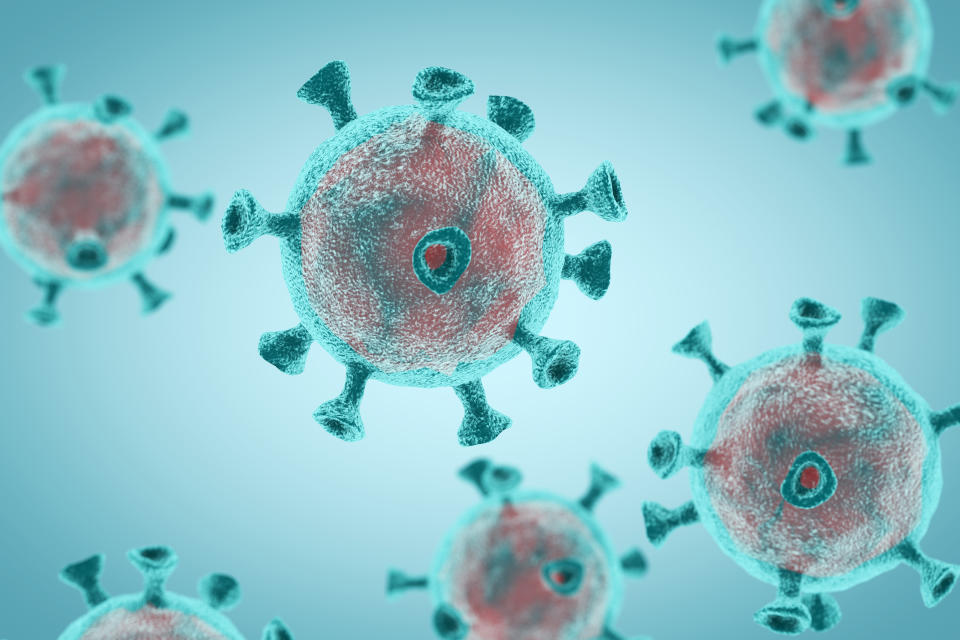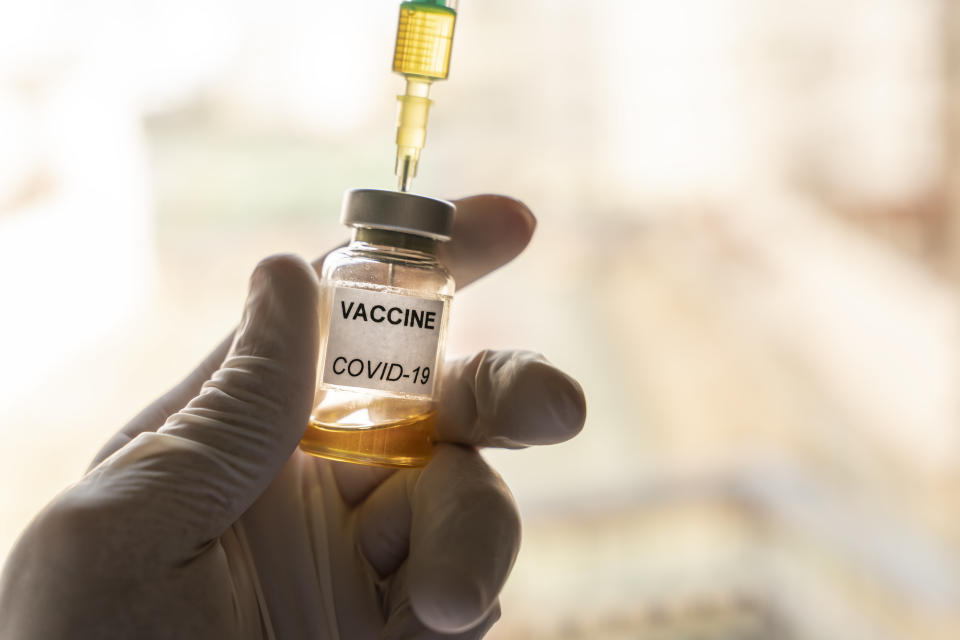'Robust' immune response detected in 100 people six months after overcoming mild coronavirus

A study of 100 former coronavirus patients has suggested all had some form of immunity against the infection six months on.
Ever since the coronavirus was identified at the end of 2019, experts have wondered whether overcoming the infection leads to lasting protection.
Concerns were raised in October when scientists from Imperial College London reported levels of immune-fighting proteins called antibodies wane “quite rapidly”, leaving a coronavirus survivor at risk of reinfection.
Critics stressed, however, antibodies make up just one aspect of immunity, with the Imperial team failing to measure T cells. These directly kill coronavirus-infected cells and call on other aspects of the immune system to help out.
Read more: App could detect asymptomatic coronavirus by listening to forced coughs
After looking at 100 healthcare workers who caught the coronavirus in March or April, scientists from the University of Birmingham found all had “robust” T cell levels against the infection six months later.
The team are “cautiously optimistic” but stressed T cells are just “one piece of the puzzle”, with it being unclear whether this immune response is enough to ward off a second infection.
Watch: Can you catch coronavirus twice?
The preliminary results have been published on bioRvix and are yet to appear in a peer-reviewed journal.
“Understanding what constitutes effective immunity to SARS-CoV-2 [the coronavirus] is extremely important, both to allow us to understand how susceptible individuals are to reinfection and to help us develop more effective COVID-19 [the disease caused by the coronavirus] vaccines,” said lead author Professor Paul Moss.
“To our knowledge, our study is the first in the world to show robust cellular immunity remains at six months after infection in individuals who experienced either mild/moderate or asymptomatic COVID-19.
“Our knowledge of SARS-CoV-2 infection is increasing all the time.
Read more: Social distancing leading to surge in dengue cases in Thailand
“While our findings cause us to be cautiously optimistic about the strength and length of immunity generated after SARS-CoV-2 infection, this is just one piece of the puzzle.
“While we increase our understanding, whether we think we have previously had COVID-19 or not, we all should still follow government guidelines on social distancing to ensure we play our part in minimising the spread of COVID-19 within our communities.”

The immune system is incredibly complex, with different routes potentially leading to protection post-infection.
Coronavirus research has largely centred on antibodies. These lock onto a virus’ surface, neutralising or “marking” it for destruction by other immune cells.
When it comes to T cells, there are two types: helper and killer.
Helper T cells stimulate antibody production and assist in the development of killer cells. Killer T cells directly destroy body cells that have already been infected by a pathogen.
T cells also send out messages that instruct the rest of the immune system to ramp up its response.
Read more: Long COVID given official diagnosis
When a virus is encountered again, the immune system typically produces more antibodies and T cells, preventing a virus from taking hold for a second time.
This is the principle behind vaccines; exposing an individual to a harmless amount of an infection that allows the immune system to recognise it if it were to invade the body.
The system is never flawless, however, with it being possible to catch any virus multiple times.
A 25-year-old man from Nevada hit the headlines in October when he became the US’ first case of confirmed coronavirus reinfection.
Early in the outbreak, officials and medics alike were confident most people who overcome the coronavirus have some immunity against it, at least for the intermediate term.
With research suggesting antibodies may be more fleeting than medics hoped, the Birmingham scientists looked at 100 healthcare workers who tested positive for the infection at the height of the UK’s first wave.
All 100 of the participants, who had an average age of 41, experienced mild symptoms or none at all.
Samples of serum, the clear liquid that remains after blood clots, were collected once a month to measure antibody levels.
Read more: Long COVID may cause skin symptoms
Blood samples were taken after six months to assess the T cell, or cellular, response.
Analysing T cells is said to be considerably more complex than studying antibodies, with the Birmingham study thought to be one of the largest of its kind to date.
“[When looking at T cells] you have to take a large amount of blood from patients and transport it for testing within three hours,” said co-author Dr Shamez Ladhani, from Public Health England.

Results revealed a T cell response was present in all of the participants six months after they tested positive for the coronavirus.
The immune response was directed against a range of viral proteins, including the spike protein that many vaccines are working to target.
When it came to the extent of T cell activity, the response was 50% higher in those who experienced symptoms, albeit mild ones.
“Interestingly, we found cellular immunity is stronger at this time point in those people who had symptomatic infection compared with asymptomatic cases,” said Professor Moss.
“We now need more research to find out if symptomatic individuals are better protected against reinfection in the future.”
Alternatively, asymptomatic individuals may fight off the virus without needing to generate a large immune response.
The results also revealed a strong correlation between the T cell response and when the antibodies peaked.
A large T cell response also appeared to protect against waning antibodies.
“Early results show T cell responses may outlast the initial antibody response, which could have a significant impact on COVID vaccine development and immunity research,” said Dr Ladhani.
Optimism was raised in July when scientists from Oxford University reported their vaccine candidate induced “strong antibody and T cell immune responses up to day 56 of the ongoing trial”.
Speaking of their own research, the Birmingham scientists stressed further studies are required to uncover whether T cells stick around beyond six months, as well as whether this correlates with protection against reinfection.
“Six months is an early time point,” said Professor Moss. “Cells can live for a very long time.”
The circulating coronavirus is one of seven strains of a virus class that are known to infect humans. It is said to be most genetically similar to severe acute respiratory syndrome (Sars), which killed 774 people in 2002/3, but has had no reported cases since 2004.
“For Sars, we know cellular immunity lasted for many years, for some patients over 10 years,” said Professor Moss. “Of course we don’t know if it protected against reinfection.”
Professor Arne Akbar from the British Society for Immunology added: “This new study is a step forward in our understanding of immunity against SARS-CoV-2, one of the most critical questions for long-term control of the COVID-19 pandemic.
“By analysing the contribution of T cells to immunity after infection, we are moving closer to discerning a clearer picture of the complex question of individual protection after SARS-CoV-2 infection.
“One of the main conclusions is T cells that are directed against the virus are maintained for at least six months after the infection.
“Therefore, while the levels of antibodies against SARS-Cov-2 may wane in patients who have recovered from the infection, as shown in other studies, T cell immunity is maintained during this same period.
“Consequently, loss of antibody alone does not predict loss of specific immunity to the virus.”
Watch: What is long COVID?



